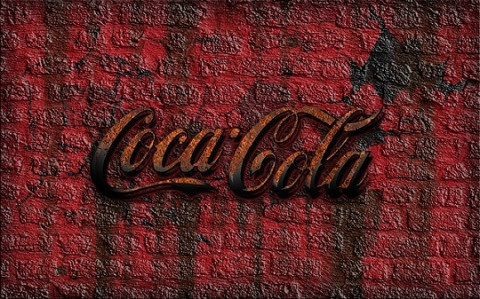
10 min
0
10.04.2022

The Importance of History
Most of us view the past as boring; therefore, being forced to write about it does seem tedious. We often overlook the immense potential of knowing our past. The world has quite a colorful history, and it’s linked to all of us one way or another. It shapes every aspect of our lives, whether it’s our language, buildings, or traditions. Without knowing it, how can we understand so many of our norms today, we cannot learn from it. In his book, the Life of Reason, George Santayana explains why learning about it is of the utmost importance. He says, “Those who do not remember the past are condemned to repeat it.”.
How Is a History Essay Different?
Your aim with writing a history essay should be that the readers stay so engrossed in it that they don’t even look up from your essay. It is like a complex puzzle, and we don’t even have all the pieces. We can make some assumptions about what might have happened by studying the pieces we do have. But ultimately, a lot of our past is lost to us and is full of unsung heroes, hidden villains, and stories from the victors’ side alone.
This makes writing about the past even more difficult, which is how it differs from other essays. Historical essays require a lot more interpretation than your regular essays. We have facts and figures, but why’s and how’s are unknown to us. This forces us to critically analyze every piece of information, not just confirming its authenticity but also learning how to elaborate on it. As the events have already taken place, you should always write these essays in the past tense.
The Types of History Papers
History essays are still essays; therefore, they are several types of papers. There are different types that require different kinds of analysis, research methods, etc. It is essential to recognize what the requirement of your essay are and write it accordingly. We can analyze and interpret on a variety of different basis, but the main three are:
- Economic;
- Political and military;
- Cultural, social, and philosophical.
Like most essays, these can be narrative and analytical as well. Narrative essays portray the past as a story with a series of events, while contrasting analytical essays are more specialized and focus on one primarily big event. The most common types of papers are narrative and simple history papers. In these types, you don’t only explain what happened but elaborate on the why and how. Another exciting type is historiography, which is about what different scholars and philosophers have written.
How To Do Your Research?
Research is an integral part of essay writing, especially when it comes to this type of essay. Research can be as vast or limited as you want it to be. You can issue a book from the library about the topic and finish your research with it. Otherwise, you can go all out by reading world history textbooks, articles, research papers, etc. With the internet now, research has become so much more convenient than ever before. You can use websites like Google scholar to look up relevant papers. Make sure that whatever you’re reading is authentic, and cross-check every fact you come across. It is effortless to mix up facts or not accurately understand them, which can harm your entire essay.
Any research you do will involve gathering data from some source. For historical research, we typically have two types of sources;
- Primary Sources: The primary source is any information that someone produces during that particular period. A person from that specific era records it, and it comprises the sentiments of that time. It provides a different perspective of someone from that time, such as Thomas Edison’s famous letters of Anne Frank's diary.
- Secondary Sources: Analysis and interpretation of the primary sources make up the secondary sources. It is anything written which elaborates on the primary sources. These include biographies, journal articles, etc.
Evidence For History Essays
Most people confuse evidence and sources with the same thing. However, there is a big difference. Sources give you the information you may need. How you use that information to create and support an argument is, in fact, evidence. It would help if you made sure that the data you are using is 100% accurate. Only then can your argument be valid. To make sure of this, people ask four crucial questions: who, when, why, and how.
Who
This elaborates on who wrote the source. If it is a secondary source, then it is best to check the credibility of the person. Read up on any reviews of their work and learn about any biases they may have that they could translate into their work. Who wrote the information you will use as a base is highly determining your work; therefore, you must check it critically.
When
The past is all about timing, so writing an essay about it is affected by when someone wrote the source. Any documents written about racial segregation in 2010 and 2020 will be very different. In 2010, Barack Obama was the President of the US and the first African-American president. However, in 2020, the “Black Lives Matter” movement began after the unjust killing of African-Americans. The sentiments and underlying meanings will be different, and this is just a decade apart. So you need to understand the atmosphere of the era when someone wrote that document. And does it create any biases or not?
Why
This is very simple. It’s just asking why someone wrote this document in the first place. The document's purpose is under question here: should it be public, is it only one person’s point of view, or is it an academic paper and such?
How
Finally, you will try to decide how this source is different and what benefit it provides to the other sources.
What Every History Essay Should Comprise Of
History essays become a lot more complicated when you start writing about it. You cannot make it up as you go or randomly state any information you might have.
It is the story of the past and needs to paint a picture of what happened to the reader.
You cannot achieve this haphazardly. There needs to be a plan of action that you follow, which creates a flow within your work. Without this flow, your reader will have a hard time staying focused on your essay. Some of you may be so skillful in writing essays that you take ap world history, but not everyone is. Luckily for the rest of you, here are some tips which will help writing an essay and create the flow.
What Is The Question?
The topic of your history essay will pose a question to you. Without understanding what the problem is, you cannot accurately answer it. Some of these essays may demand the series of events that took place, while others would ask you to elaborate on what or why something occurred.
Every history essay will have a different set of requirements. If you don’t take out the time to read and understand what is being asked, you are bound to make careless errors. Such as the question may ask about the U.S civil war, which is a U.S history question, and you may write about the life of Abraham Lincoln, granted there is a connection, but you were not asked about that.
The question itself will give you a guideline on what to write. Read it carefully, and you will understand where what time frame and on whom is the emphasis for the essay needed. Alas, this is something students almost always overlook, and it costs them time, effort, and sometimes even a grade.
Research, Research, And More Research
The past is a story, one that you cannot make up on the spot. It is complex and involves numerous variables. You cannot write a history essay without doing your research first. You do not need to limit your research to your academic coursework.
It’s the age of technology, so use that. Read up on books, articles, or any paper written by distinguished writers. Everything you have researched will give you a strong foundation. Hopefully, with the more research you conduct, you will start to get more critical. This will benefit you because you will begin to realize what and how the author meant something; it reaffirmed your points or contradicted them.
Creating an Outline
Some students prefer to overlook this step because it does not seem important enough, but dare we say that this is the most important aspect of how to write an essay. Extensive research will get you all the facts and figures you need for your history essay. However, without articulating it in a manner that appeals to the reader and bringing some direction to your work, you render it futile.
An outline helps you structure your information. Having understood the question and done the research, you know what to do and can weed out any excess data.
You can arrange your history essay either thematically or chronologically. If the essay requires interpretation or analysis of any sort, then you should use thematic order. But if the need is a series of events, then time is significant, so one should opt for the chronological approach.
You can outline your history essay by creating headings and subheadings.
Introduction
The list provided in the outline helps us structure the essay, but now we move on to what to write in the history essay itself. The first paragraph is the introduction and is the first thing a reader will read in your essay, so a lot of effort should be put into it. It should be attention-grabbing; therefore, you should mention an interesting element in it. The introduction contains the basic essence of the essay and gives the reader an insight into what to expect from the rest of the essay.
Typically, an introduction includes a thesis statement as well. This statement is known as a “contention” in history essays and provides a brief answer to the question. The introduction may be the first part of the essay, but you should write it after the main body. The reason is that an introduction will be a sort of summarization of the history paper, and you can’t summarize something if you haven’t written it yet.
Body
The second part of a history essay is the main body. You can divide the main body into different sections on a variety of bases. If you have to interpret an event or something, each section will present another argument supporting the material.
However, if assigned to write about something like U.S. President Roosevelt, you can allocate a different section to his office's other terms. You have to make sure that your body paragraphs are not too small and should have at least 5 or 6 lines each. Furthermore, you should present your strongest arguments in the first and last body paragraphs.
Conclusion
The last part of an essay is the conclusion. Like the introduction, this is a vital part as well. This is your last chance to convince the reader of your argument. It should summarize the main idea of your essay. No one wants to read a lengthy conclusion after reading an essay, so make it concise and to the point.
Formatting, Proofreading, and Referencing:
One would assume that with the conclusion the essay writing process ends, they would be wrong. The final step is always proofreading your work, but you have to format it and accurately cite any references you have used before that.
Every instructor provides a guideline on how they want their assignment formatted; therefore, you must keep that in mind. For a history essay, you have to do extensive research and therefore utilizes information from various sources. Try to cite all sources accurately as:
- Give credit where it's due;
- Avoid plagiarism if you have quoted something;
- Give your work more regard by referencing original work.
Now, we move to the last step. No matter how good of a writer you are, it would help if you still had it. Proofreading is vital because it helps avoid minor grammatical errors, incorrect words, or dates mixed up.
Need assistance with your assignment? Studybay history essay writing service can help you right now!



